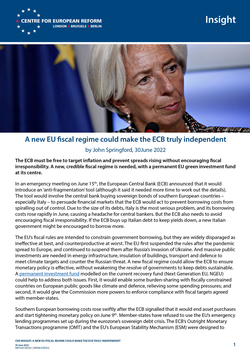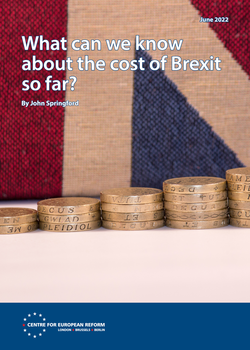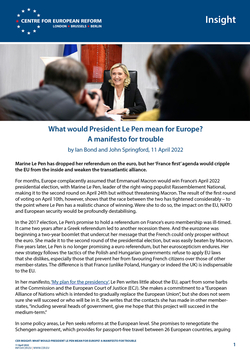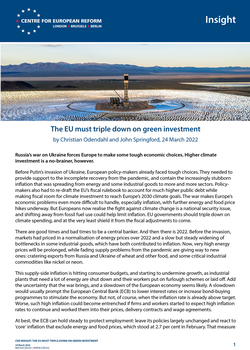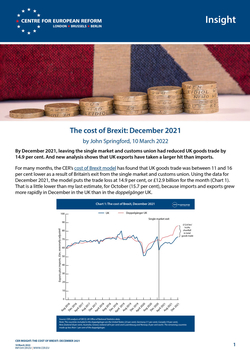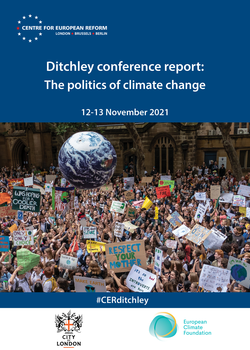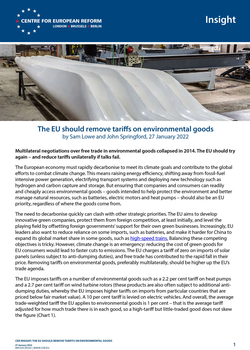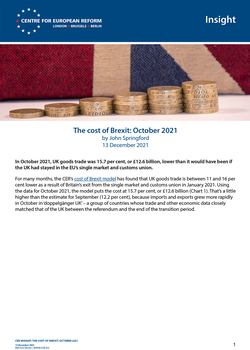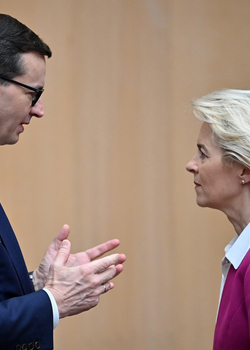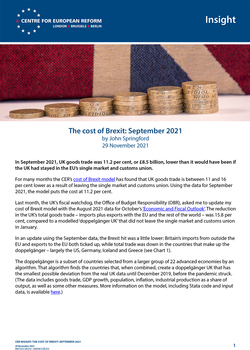John Springford
John Springford

Non-resident associate fellow
Areas of expertise
Britain and Europe, migration and labour markets, the single market and supply side reform, international trade, the euro, fiscal and monetary policy.
Twitter
Bluesky
T3VyIHJlc2VhcmNoZXJzIGNhbiBiZSByZWFjaGVkIHZpYSBlbWFpbCB1bmRlciBbZmlyc3RuYW1lXUBjZXIuZXU=
A new EU fiscal regime could make the ECB truly independent
30 June 2022
The ECB must be free to target inflation and prevent spreads rising without encouraging fiscal irresponsibility. A new, credible fiscal regime is needed, with a permanent EU green investment fund at its centre.
What can we know about the cost of Brexit so far?
09 June 2022
The UK's GDP is 5.2 per cent smaller than a modelled ‘doppelgänger’ UK that did not leave the EU; investment is 13.7 per cent lower, and goods trade, 13.6 per cent lower. Most of those costs are down to Brexit.
What would President Le Pen mean for Europe? A manifesto for trouble
11 April 2022
Marine Le Pen has dropped her referendum on the euro, but her ‘France first’ agenda would cripple the EU from the inside and weaken the transatlantic alliance.
The EU must triple down on green investment
24 March 2022
Russia’s war on Ukraine forces Europe to make some tough economic choices. Higher climate investment is a no-brainer, however.
The cost of Brexit: December 2021
10 March 2022
By December 2021, leaving the single market and customs union had reduced UK goods trade by 14.9 per cent. And new analysis shows that UK exports have taken a larger hit than imports.
Ditchley conference report: The politics of climate change
02 February 2022
Climate change is as much a political problem as a technological one, and the CER's annual economics conference focused on ways to overcome inertia, denial and myopia.
The EU should remove tariffs on environmental goods
27 January 2022
Multilateral negotiations over free trade in environmental goods collapsed in 2014. The EU should try again – and reduce tariffs unilaterally if talks fail.
The cost of Brexit: October 2021
13 December 2021
In October 2021, UK goods trade was 15.7 per cent, or £12.6 billion, lower than it would have been if the UK had stayed in the EU’s single market and customs union.
A permanent EU recovery fund can help Poland change
29 November 2021
The EU’s climate ambitions will add tension to its relationship with Poland. Making the EU’s recovery fund permanent would provide stronger incentives for Poland to embrace the energy transition.
The cost of Brexit: September 2021
29 November 2021
In September 2021, UK goods trade was 11.2 per cent, or £8.5 billion, lower than it would have been if the UK had stayed in the EU’s single market and customs union.

